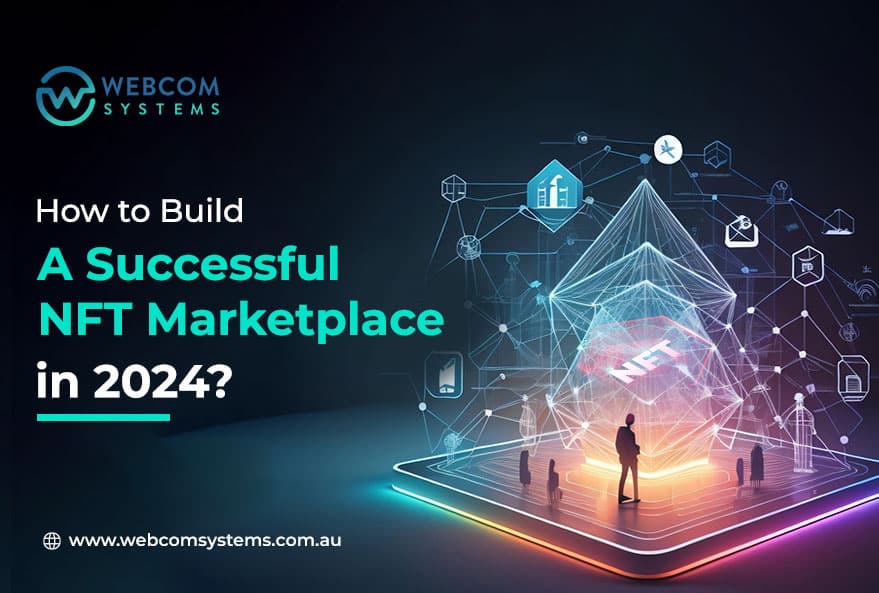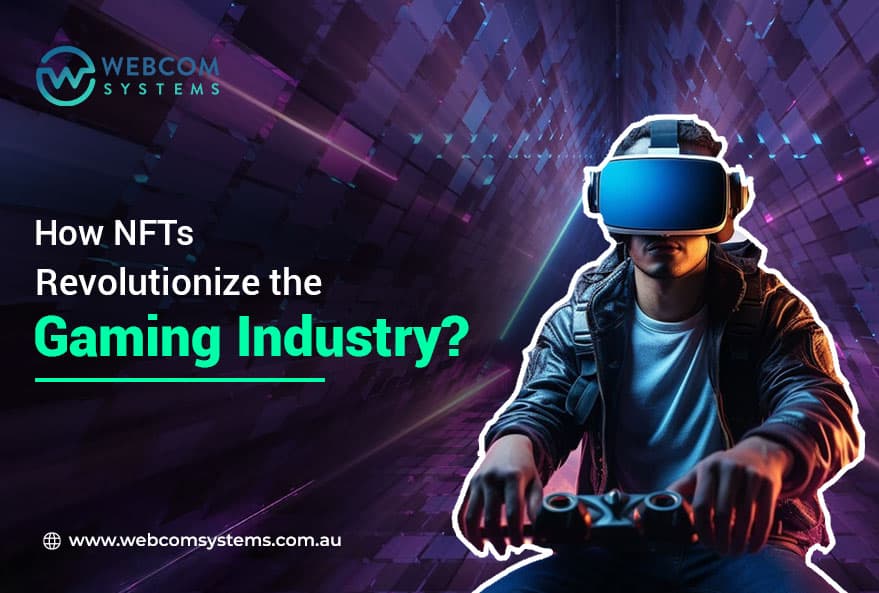Non-fungible tokens (NFTs) have stormed the digital world and are seen to have no sign of slowing down. We are approaching another year of innovation and development in this very space, and with that, building a successful NFT marketplace as an endeavor itself is thrilling.
Through this detailed blog, you will understand how to build a successful NFT marketplace that will be unique and will offer its services to both the creators and the collectors.
Let us first understand why there is a need for an NFT marketplace!
Why Should You Build An NFT MarketPlace?
Want to start an NFT Marketplace? Before talking about it, let’s look into why it can be a smart business venture. NFTs, which can be one of the most successful digital collectibles of all time, have generated a lot of buzz. They are new to owning things like music, digital art, or even real estate! This market is full of opportunities for everyone involved, from an artist launching NFTs to collectors purchasing them. By being an owner of an NFT marketplace, you can link or join these audiences together to make revenue through charges or commissions.
Steps to Building Your NFT Marketplace
To build your NFT marketplace successfully, you need to follow a strategic approach. There are two main approaches to creating an NFT marketplace: replicate the existing stand-ready-to-use NFT platforms like Open Sea and customize it or develop the custom NFT marketplace from zero.
When building your NFT marketplace, it is crucial to follow these steps:
Hire a Top NFT Marketplace Development Company : Choose a company with a strong track record of projects, speed, security, and a large user base. A specialized NFT marketplace development company can take you through all the steps of the process, from thinking up an idea to deployment and management. They must be experienced in blockchain technologies, smart contract development, and user experience design to provide a smooth and rich features platform.
Identify Your Niche Market : Niche identification is an essential aspect of establishing an NFT marketplace for it to have a chance to firmly place itself in an extremely competitive and fast-developing NFT universe. You can narrow your market scope by addressing one target segment at a time. This way, your platform can be developed to fit the needs and tastes of that specific niche, which is very valuable in the competitive NFT space. Some possible niches that could be explored are digital art, music, sports memory collectibles, and virtual fashion. The digital art market has seen a giant growth, and artists have been using NFTs as a way to sell their exclusive artworks. Focusing on a definite type of art, for instance, abstract, surrealistic, or digital illustrations, increases the chances of building a solid group of people who love art and collect it.
Select the Right Blockchain Platform for Your Industry : Carefully decide on a blockchain platform, such as Ethereum, Binance Smart Chain, or Flow, based on their specific strong features. Ethereum is easy to use and clearly understood by ordinary people. However, there’s a shortcoming of Ethereum in scalability, which is overcome in Binance Smart Chain successfully with lower operation cost and faster transaction time. Flow has brought a new layer for the NFT marketplace, which has been in need for a long time; Flow is designed mainly for NFT industry needs. Think about scalability, transaction fees, security parameters, and industry adaptation while deciding on choosing blockchain technology.
Build User-Friendly Features : Craft an interface that feels effortless, with intuitive design, seamless navigation, and features that cater to both creators and collectors. Make onboarding a breeze, empower discovery with powerful search filters, and ensure security with robust wallet integration. This combination will keep users engaged and make your marketplace the go-to platform for all things NFT.
Implement Security and Authentication : Because digital assets are virtual, safeguarding their security and authenticity is paramount. To achieve this, implement high-strength security features like two-factor authentication, encryption, and secure smart contracts. These measures will shield user information and transactions. Furthermore, explore collaborating with established verification providers to confirm the legitimacy of NFTs offered on your platform.
Engage in community building: Develop a robust and vibrant community around your NFT marketplace using social media, newsletters, mailing lists, and forums. Effective communication is a factor that ensures user involvement, promotes individual loyalty, and creates a feeling of belongingness among community members.
Revenue Generating Options for Your NFT Marketplace
With all of the development steps that you have taken to build the NFT marketplace platform and made a way for your NFT marketplace, we will now explore the various profit-making features it has to offer that will help you to monetize your platform.
Listing Fees : Charge artists a listing fee for adding their NFTs to your marketplace. This can be a one-time fee and a subscription model, depending on the business strategy. Make sure that you have the right pricing even if you would like to keep the value of artists’ exposure and marketing in mind while engaging with the community.
Transaction Fees : Earn a commission whenever a sale is made on your marketplace. This can be a small, yet, significant amount of money normally between 2% and 10% which is required to be paid from the total cost of every NFT. The increase in transaction volume equals more revenue opportunity.
Premium Features : Charge extra fees to artists and collectors for access to premium features. Ensure that the vendor from whom you are seeking NFT marketplace development services is well-equipped with sophisticated features that boost revenue generation. Do not miss the point to provide optimized listing, priority support, analytical tools, insights, or access to the events and partnerships. You can design packages that appeal to customers who are ready to pay for enhanced benefits and specialness by providing premium options.
Secondary Sales Commission : NFTs give artists the option to continue receiving royalties for the sold artwork not only at the first sale but even when it subsequently changes hands. Agree on a commission for a secondary sale that is fair to both artists and collectors. It creates a motivating environment where artists want to list their NFTs on your marketplace and collectors want to trade for a long period.
Partnerships and Sponsorships : Utilize partnerships with and sponsorships by brands, celebrities, and influencers as a revenue-generating force. Develop a partnership with recognized entities in your specialization to create exclusive NFT drops, or to advertise limited-edition collections. Through this strategy, you can connect with your existing fans, and create a win-win situation that gives you more exposure and more users.
The Bottom Line
As the NFT markets expand in 2024 year building your own NFT market is a nice way to make money. Through the provision of a marketplace tailored for a particular niche, user-friendly experience, and earning streams that involve listing fees, transaction fees, premium features, secondary sales commissions, and strategic partnerships, you can create a marketplace. The NFT marketplace development services are worth capitalizing on to occupy a unique position in the fast-growing and lucrative industry.
Being one of the major players in the NFT marketplace development, Webcom Systems provides open-source technology and maintenance to ensure the great success of the NFT platform. The white-label products allow the fast launch of tailored NFT marketplaces based on custom business models, time to market, and budget.
Also Read: The Future of NFT Development: Anticipating Trends and Innovations in the NFT Space




